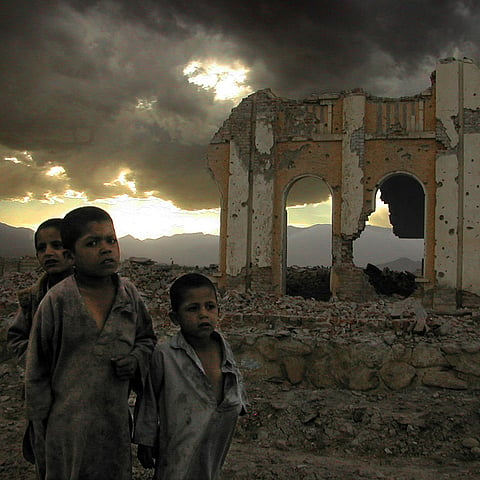Children of Kabul
Photo : Flickr / Mark Knobil
(Image is for illustrative purpose only)
Fiction
On the other side
A boy gets more than he anticipated when trying to prove his manhood in Kabul.
My parents didn't force me to go to the 'other side' of town that morning. I wanted to show them – mostly my father – that I was a grown man. It was 1994, I was ten years old, and a full-scale civil war had been ravaging my country for two years.
The pale sun had barely risen when I left home. It had snowed the night before, and my eyes took a few seconds to adjust to the brightness, even at that hour. Aside from a few stray dogs, the streets were empty. I shivered as a cold wind hit me in the face. I buttoned up my coat and plunged my hands deeper into my pockets, walking as fast as I could towards the bus station.

